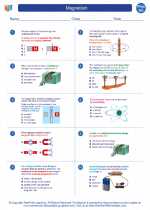Producers in Ecology
In ecology, producers are organisms that can produce their own food through the process of photosynthesis. They are the foundation of the food chain and are essential for the survival of all other organisms in an ecosystem.
Photosynthesis
Producers, such as plants, algae, and some bacteria, are able to carry out photosynthesis, a process that converts light energy, usually from the sun, into chemical energy in the form of glucose. The basic equation for photosynthesis is:
6CO2 + 6H2O + light energy → C6H12O6 + 6O2
Importance of Producers
Producers form the base of the food chain by providing food for herbivores, which in turn provide food for carnivores and other higher-level consumers. Without producers, the entire food web would collapse, leading to the extinction of many species.
Study Guide
Here are some key points to remember about producers:
- Producers are organisms that can produce their own food through photosynthesis.
- They form the base of the food chain in an ecosystem.
- Examples of producers include plants, algae, and some bacteria.
- Photosynthesis is the process by which producers convert light energy into chemical energy in the form of glucose.
- Producers are essential for the survival of all other organisms in an ecosystem.
Remember to study the process of photosynthesis, the importance of producers in an ecosystem, and examples of different types of producers.
.


